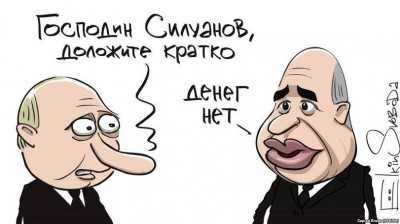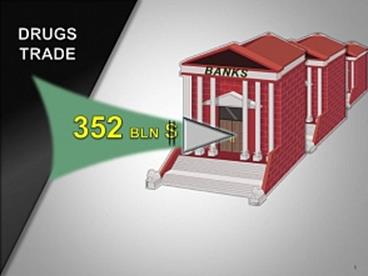
Fighting with offshore companies in Russia is increasing. Companies with an opaque ownership structure will be more difficult to hide their beneficiaries, and the — to hide behind technical firms, or chains of such firms in the offshore. From December this year will begin to act amendments to 115-FZ (AML / CFT law), which oblige companies to report information about their real owners are turning to banks. Even if the ultimate beneficiary they identify can not, they will have to document that you took all measures to identify such persons.
Changes in 115-FZ are intended to stop the practice, according to which banks recognize the beneficiaries of the CEOs of Charter companies to look for their traces in a technical offshore companies. Under current law, banks are obliged to identify the beneficiaries when receiving their service. But until there is legal duty of entities to report their real owners, the credit institution has completed this requirement at their discretion. And, accordingly, are taking on higher risks (and extreme measure for repeated violation of 115-FZ — revocation of license), if needed corporate funds in the accounts.
The Federal tax service (FNS), “Izvestia” explained that the increasing demands for the disclosure of information about beneficiaries is a global practice aimed at countering the laundering of income obtained by criminal means, as well as preventing the transfer of profits to offshore companies. In FNS indicated that this measure generally aims at increasing the transparency of the business. According to representatives of FNS, tougher disclosure standards will have a positive impact on the process.
Financial regulators have provided a mechanism of preventing unauthorized write-offs from cards of customers
Companies often deliberately create a complex ownership structure that is harder and sometimes impossible to identify their beneficiaries, — says head of the financial monitoring service of the Bank Dean Bagatov. For example, often the founders of the Russian organizations are non-resident companies, registered anywhere in Cyprus, which in fact are the citizens of Russia.
With this structure, according to Dina Bagataway, banks often impossible to ascertain the ultimate owners.
— When applying for service at a particular Bank, such organizations usually declare that they have no information about the ultimate beneficiary, and their founder — a kind of Cyprus company refuses to disclose them, citing the law of his country, — says the representative of the Bank. — Further, the Bank is powerless, nothing more remains than to apply a formal approach and to recognize the beneficial owner of such entity, usually the CEO. Permitted by article 7 of the law 115-FZ, if the result of all informed of the measures taken, the beneficial owner is not identified. Who is the reality behind this organization — no one knows, traces lost in Cyprus.
Dean Bagatov notes that in the framework of implementation of technical innovations for the offshore company to hide would be impossible.
According to the chief of analytical Department of National rating Agency Karina Artemieva, amendments to 115-FZ the banks will withdraw from areas of risk violations of the AML / CFT legislation in identifying the ultimate owners of companies.
Such opaque organisations banks will simply refuse service, they will not open a client account, — says Artemiev. — It is difficult to say how significant is the potential loss of customer base for a Bank.
According to Karina Artemieva, banks in anticipation of legislative changes the maximum contact with your customers and warn them in advance about the new rules of engagement.
At the same time, the debt of Russian companies to affiliates is growing, and this is contrary to the policy of de-offshorization. According to “Expert RA” for the year the debts of Russian companies and banks to affiliated entities (usually private offshore companies) has increased and exceeded 50% in III–IV quarter of 2016 the amount of payments on the external debt of the 30 largest companies with external debt is $17.8 and $22.4 billion But, according to Central Bank estimates, actual payments could amount to $11 billion in the third quarter and $21.5 billion in the fourth quarter of 2016. The remaining amount is accounted for by intra-group payments (some 30 Russian companies among the largest borrowers in the foreign market), which generally have a high probability of rollover and refinancing.








